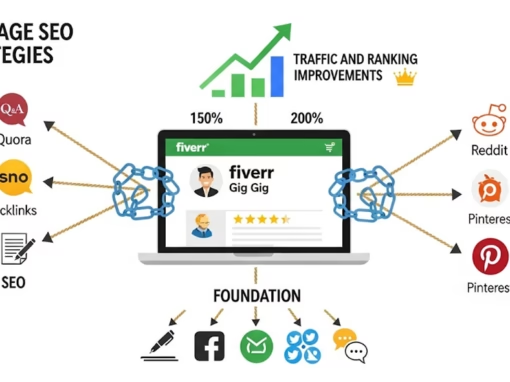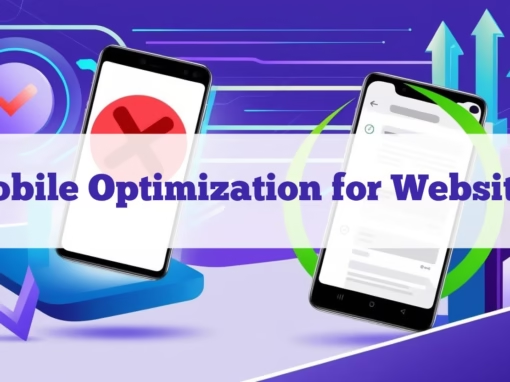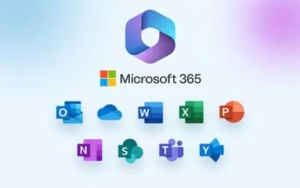The e-commerce industry is booming, and small businesses are increasingly turning to online platforms to reach customers and grow their sales. With so many e-commerce platforms available, choosing the right one can be overwhelming. In this article, we’ll explore the top 5 e-commerce platforms for small businesses, complete with statistics, analysis, and key features to help you make an informed decision.
Why E-Commerce is Essential for Small Businesses
E-commerce has become a critical component of business strategy, especially for small businesses. Here’s why:
- Global Reach: E-commerce allows businesses to reach customers worldwide.
- Cost-Effective: Setting up an online store is often cheaper than a physical store.
- 24/7 Availability: Customers can shop anytime, increasing sales opportunities.
- Data-Driven Insights: E-commerce platforms provide valuable data to optimize marketing and sales strategies.
According to Statista, global e-commerce sales are projected to reach **7.4 trillion by 2025∗∗, up from 5.2 trillion in 2021. This growth highlights the importance of choosing the right platform for your business.
Top 5 E-Commerce Platforms for Small Businesses in 2025
1. Shopify
- Overview: Shopify is one of the most popular e-commerce platforms, known for its ease of use and scalability. It’s ideal for small businesses looking to grow quickly.
- Key Features:
- Drag-and-drop store builder.
- Over 6,000 apps in the Shopify App Store.
- Built-in payment processing (Shopify Payments).
- Mobile-friendly designs.
- Pricing: Starts at $29/month (Basic Plan).
- Statistics:
- Powers over 4.4 million websites globally.
- Shopify merchants generated $319 billion in sales in 2023.
- Pros:
- Easy to set up and use.
- Excellent customer support.
- Scalable for businesses of all sizes.
- Cons:
- Transaction fees for using third-party payment gateways.
- Limited customization compared to open-source platforms.
2. WooCommerce
- Overview: WooCommerce is a free, open-source plugin for WordPress, making it a great choice for businesses already using WordPress.
- Key Features:
- Fully customizable.
- Thousands of free and paid extensions.
- SEO-friendly.
- Integrates seamlessly with WordPress.
- Pricing: Free (but requires hosting, themes, and plugins).
- Statistics:
- Powers 28% of all e-commerce websites.
- Over 5 million active installations.
- Pros:
- Highly flexible and customizable.
- No transaction fees.
- Large community support.
- Cons:
- Requires technical knowledge for setup and maintenance.
- Hosting and additional features can add to costs.
3. BigCommerce
![]()
- Overview: BigCommerce is a robust platform designed for businesses looking to scale. It offers advanced features out of the box.
- Key Features:
- Built-in SEO tools.
- Multi-channel selling (e.g., Amazon, eBay, Instagram).
- No transaction fees.
- Scalable for high-growth businesses.
- Pricing: Starts at $29/month (Standard Plan).
- Statistics:
- Powers over 60,000 stores worldwide.
- BigCommerce merchants saw a 28% increase in revenue in 2023.
- Pros:
- No transaction fees.
- Advanced features without needing plugins.
- Excellent for scaling businesses.
- Cons:
- Higher learning curve compared to Shopify.
- Limited free themes.
4. Wix eCommerce
![]()
- Overview: Wix is a beginner-friendly website builder that also offers e-commerce functionality. It’s perfect for small businesses with simple needs.
- Key Features:
- Drag-and-drop website builder.
- Over 500 templates.
- Built-in payment processing.
- Mobile-optimized designs.
- Pricing: Starts at $27/month (Business Basic Plan).
- Statistics:
- Over 200 million users worldwide.
- Wix eCommerce stores grew by 35% in 2023.
- Pros:
- Extremely easy to use.
- Affordable pricing.
- Great for small inventories.
- Cons:
- Limited scalability for larger businesses.
- Fewer advanced e-commerce features.
5. Squarespace
![]()
- Overview: Squarespace is known for its stunning, design-focused templates. It’s a great choice for creative businesses and small online stores.
- Key Features:
- Beautiful, responsive templates.
- Built-in SEO tools.
- Integrated analytics.
- Mobile-friendly designs.
- Pricing: Starts at $33/month (Basic Commerce Plan).
- Statistics:
- Powers over 3 million websites.
- Squarespace merchants saw a 20% increase in sales in 2023.
- Pros:
- Stunning designs.
- All-in-one platform with hosting included.
- Great for small businesses and portfolios.
- Cons:
- Limited third-party integrations.
- Higher pricing compared to competitors.
Comparative Analysis of Top E-Commerce Platforms
| Platform | Best For | Pricing | Ease of Use | Scalability | Customization |
|---|---|---|---|---|---|
| Shopify | Small to large businesses | $29/month+ | ⭐⭐⭐⭐⭐ | ⭐⭐⭐⭐⭐ | ⭐⭐⭐⭐ |
| WooCommerce | WordPress users | Free (hosting costs apply) | ⭐⭐⭐ | ⭐⭐⭐⭐⭐ | ⭐⭐⭐⭐⭐ |
| BigCommerce | High-growth businesses | $29/month+ | ⭐⭐⭐⭐ | ⭐⭐⭐⭐⭐ | ⭐⭐⭐⭐ |
| Wix eCommerce | Small businesses | $27/month+ | ⭐⭐⭐⭐⭐ | ⭐⭐⭐ | ⭐⭐⭐ |
| Squarespace | Creative businesses | $33/month+ | ⭐⭐⭐⭐ | ⭐⭐⭐ | ⭐⭐⭐⭐ |
How to Choose the Right E-Commerce Platform
When selecting an e-commerce platform, consider the following factors:
- Budget: Compare pricing plans and additional costs (e.g., hosting, plugins).
- Ease of Use: Choose a platform that matches your technical skills.
- Scalability: Ensure the platform can grow with your business.
- Features: Look for built-in tools like SEO, analytics, and payment processing.
- Design: Pick a platform with templates that align with your brand.
Conclusion
Choosing the right e-commerce platform is crucial for the success of your small business. In 2025, Shopify, WooCommerce, BigCommerce, Wix eCommerce, and Squarespace stand out as the top options, each with its unique strengths.
- Shopify is ideal for businesses looking for an all-in-one solution.
- WooCommerce offers unmatched flexibility for WordPress users.
- BigCommerce is perfect for high-growth businesses.
- Wix eCommerce is great for beginners with simple needs.
- Squarespace is the go-to for creative businesses.
Evaluate your business needs, budget, and goals to select the best platform. With the right choice, you’ll be well on your way to e-commerce success in 2025 and beyond!










0 Comments